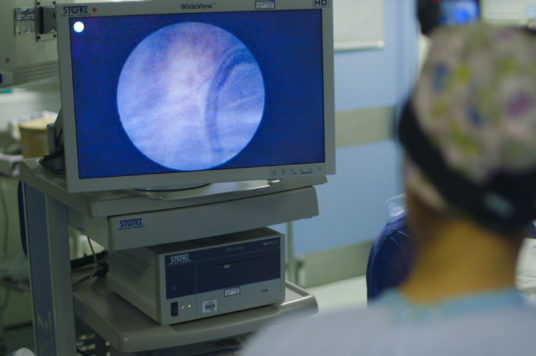St George’s raises awareness on TAPS Day
Today marks Twin Anaemia Polycythaemia Sequence – known as TAPS – Day, 15 years since the condition was formally recognised.
TAPS is an uncommon condition that occurs in 3-5% of identical twin pregnancies. It occurs when small blood vessels form in the placenta between the babies, allowing a slow passage of blood from one baby to the other. This results in one twin becoming very anaemic (very low blood count) and the other polycythaemic (very high blood count). This can lead to extra strain on the heart in both babies, which can make one or both babies unwell and can even be fatal in some circumstances.
St George’s sees roughly 10 TAPS cases a year within its Twin Trust Centre for Research and Clinical Excellence. Due to the rarity of the condition, most research is limited to very small numbers and an international registry is in place to collect data from around the world.
Professor Asma Khalil, Consultant in Fetal Medicine, said: “The majority of pregnant women, even those with twins, won’t have heard of TAPS, so today provides an opportunity to raise awareness of this important condition.”
She added: “At St George’s, we see 350 twin and multiple pregnancies a year and so we have developed a set of criteria to accurately diagnose TAPS. As a specialist centre, we are able to provide laser therapy for the condition in severe cases and we have very good outcomes for those needing this treatment.”
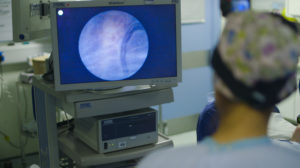
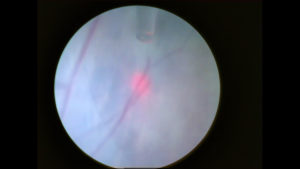
The laser procedure sealing off the blood vessels in the womb. Photo credit: James W. Newton / Wonderhood Studios
Nichola Luther was referred to St George’s by her local hospital and was diagnosed with TAPS in 2020. She underwent a fetoscopic laser procedure to treat her babies. This involved inserting a camera into the womb, then using a laser to seal off the blood vessels that had been allowing blood to leak from one baby to the other.
The procedure was a success and, following further monitoring, Nichola’s babies were born healthy later in the year.
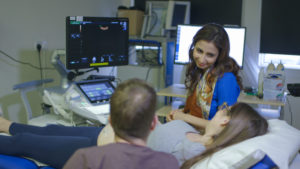
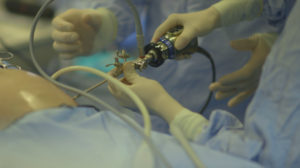
Nichola, with her partner, being scanned by Professor Asma Khalil. The fetoscopic procedure. Photo credit: James W. Newton / Wonderhood Studios.
Nichola said: “ Our experience at St George’s with the fetal team was an amazing one. They saved the lives of our identical twin baby boys who were very poorly with spontaneous TAPS. They work in a way that makes you feel you are in safe and secure hands. They give you hope. Thank you, we will be forever grateful to you all and especially our surgeon Professor Asma Khalil.”
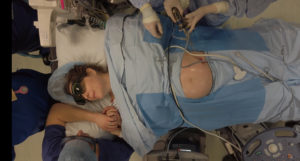
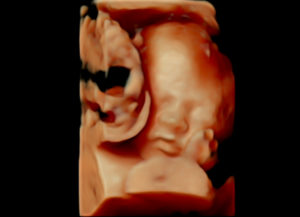
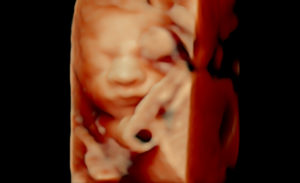
Nichola awaiting the procedure. Scans of the babies. Photo credit: James W. Newton / Wonderhood Studios.
Professor Asma Khalil explains more about TAPS here:
To find out more about TAPS, please visit the Twins Trust website.
Photo credit: James W. Newton / Wonderhood Studios


